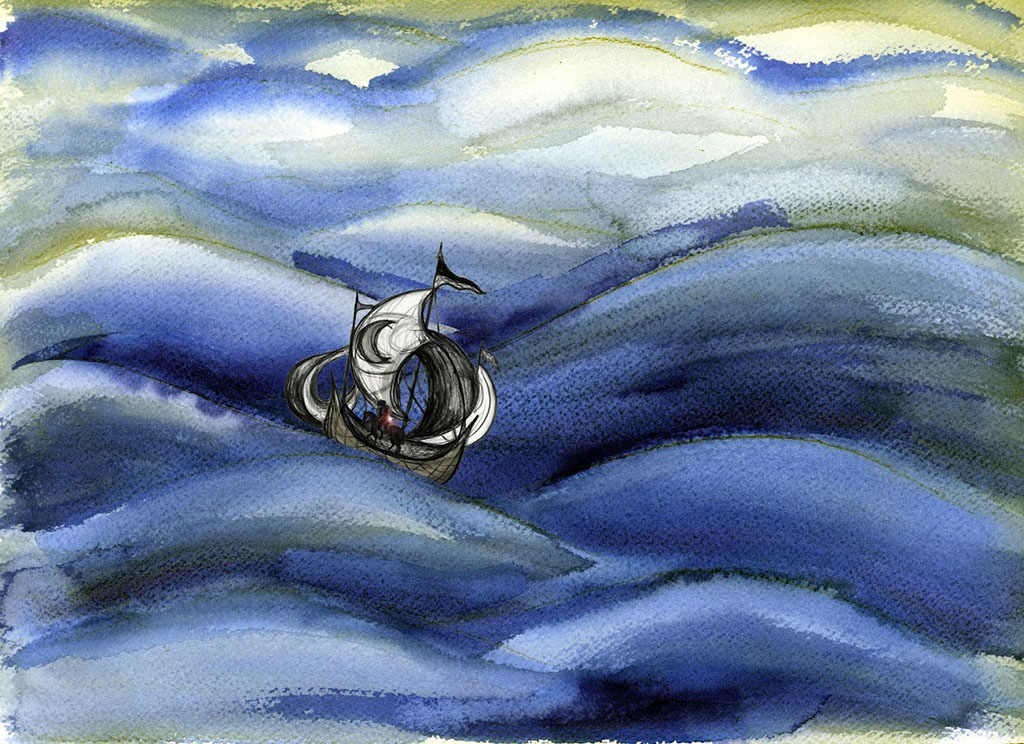
THE SIGN OF A SUCCESSFUL CARING ORGANIZATION MAY RESIDE IN HOW ITS IMPACT ULTIMATELY OVERSHADOWS ITS ORIGINS.
In 1981, my wife and I founded The Hartsbrook School not far from Mind & Life’s offices here in Hadley, Massachusetts. At the time, Hartsbrook was merely an idea voiced among a few new friends in our living room. There were no students yet, no teachers, no facilities. There was only an idea, one that became our passionate aspiration. We longed to not only educate children intellectually (as important as that is), but also to cultivate their imagination by integrating the arts, music, theatre, and poetry throughout the curriculum. We wanted to teach environmental values through a program that included gardens, goats, chickens, sheep, and milk cows. And most importantly, we believed these bright young beings should experience the ever-present care and love of their teachers for all of who they were: body, mind, and spirit.
We opened in a single room with furniture I made in my wood shop, dolls made by our young kindergarten teacher, and five children. Now, 33 years later when I visit the school, it’s clear to see what time has wrought: Today there are 260 students at Hartsbrook, 35 teachers, and 60 acres of buildings, playgrounds, fields, gardens, goats, and cows.
What is also clear to me when I visit is how few of those present know me or recall the fragile beginnings of Hartsbook. My anonymity is fitting. The hundreds of children, parents, and friends that stream through the school each day needn’t know the sacrifices and struggles that created the place they now enjoy. New challenges exist that require their full engagement. The passion and ideals of the founders remain even as the individuals fade from view. The original vision is made more vibrant by the fact that each child, parent, and teacher, year after year, internalizes the commitments, hopes, and beliefs of those who were there at the beginning.
This is the paradox of passion and perhaps the strange, poignant path of all organizations that come to be because of passion, purpose, and self-sacrifice.
The organizations with which I’ve been affiliated usually begin with a small group that believes its convictions will catch on. They believe that there will be others who will come to cherish the mission and eventually make a community as large as that mission. And though it is bittersweet (and usually unsaid), those who establish organizations predicated on altruism understand and hope for this telltale sign of success: that their mission’s expansion will mean their diminution.
Mind & Life is such an organization. Thirty years ago, it began as a dialogue between three people: the Dalai Lama, Adam Engle, and Francisco Varela. Consider that for a moment: not merely what three people can accomplish, but also how much deeper that impact has been because of the millions who have taken up what these three men championed—scholars, scientists, and contemplatives; members of the general public who hear about Mind & Life’s mission through its writings, programs, events, even its social media postings; not to mention those who have sat, and now sit, on Mind & Life’s board of directors; and those who have worked, or work, on its staff.
Of course, there are many who still, and will always, remember the legacy of the three who began this Institute. But not all those who discover Mind & Life now will know its founders, nor the nature of its founding—just as they may not remember me or those who are now stewarding the mission. And yet who could fail to call this joint enterprise of ours—its expansion across time and circumstance—a resounding success?
Strange as it may sound, I’m quite certain that those who were at Mind & Life’s beginnings and wanted the Institute to succeed wished this moment for us now—unprecedented worldwide activity even in the face of inevitable individual anonymity.
I am proud to be leading the Institute during one of its most exciting phases. In this issue, you’ll see the first articulation of “A Call to Care,” our ambitious educational program to embed compassion and ethics deeply enough that it influences all human interactions. None of us at Mind & Life now may live to see the ultimate results of this work, but we take it up anyway because its beginnings depend upon those who are here at this moment. All of us know that if this work is a true success, we may not be remembered as its authors—but, in fact, what lasts beyond us is the very evidence of our triumph, and therefore more memorable than we could hope for.

